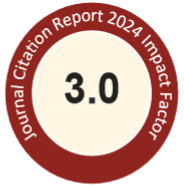Abstract
Monascus-fermented products offer valuable therapeutic benefits and have been extensively used in East Asia. Secondary polyketide metabolites of Monascus, including monacolin K (MK), ankaflavin (AK) and monascin (MS), have been reported to have antioxidation, antiinflammation and tumor metastasis suppression effects. This study investigated the attenuation of radiation-induced proinflammatory cytokines overexpression by ethanol extract of red mold dioscorea (RMDE). We used the B16-F0 melanoma cell line to establish an animal radiotherapy model and serum proinflammatory cytokines (i.e. TNF-a, IL-1b and IL-6) were analyzed. RAW 264.7 cells were pre-treated with different pure compounds [AK, MS and citrinin (CT)] of RMDE and irradiation of 2 Gy cobalt-60 g-radiation. The animal experiment results showed that oral administration of RMDE increased feed intake in C57BL/6 mice. Serum proinflammatory cytokine levels (i.e. TNF-α, IL-1β and IL-6) and profibrotic cytokine (TGF-b) were significantly reduced in the RMDE group compared to control group (p < 0.01). For in vitro cell model, we evaluated the antiinflammative effects of AK, MS and CT in irradiated RAW 264.7 cells. Both AK and MS significantly reduced radiation-induced overexpression of proinflammatory cytokines and profibrotic cytokines. We have shown for the first time that Monascus-fermented products can attenuate ionizing radiation-induced inflammatory response. AK and MS are the main components of RMDE responsible for this effect.
ScienceDirect Link
Recommended Citation
Huang, C.-C.; Ho, B.-Y.; and Pan, T.-M.
(2012)
"Modulation of proinflammatory cytokines by red mold dioscorea ethanol extract in radioactive cobalt-60 exposure,"
Journal of Food and Drug Analysis: Vol. 20
:
Iss.
2
, Article 13.
Available at: https://doi.org/10.6227/jfda.2012200213

